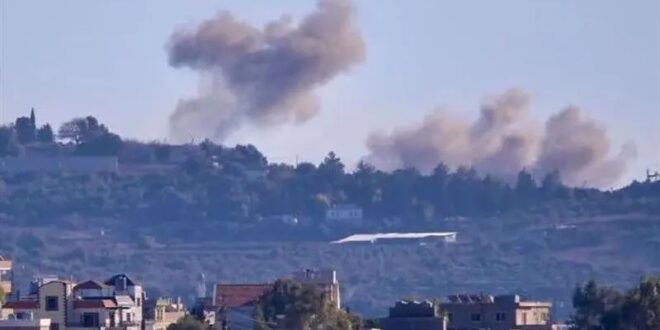Analysts see the reappointment of Lebanon’s army commander, Joseph Aoun, as a stabilizing influence that is key to keeping Lebanon relatively peaceful at a time of border skirmishes with Israel. It is not clear, though, whether he can keep Lebanon out of a conflict with Israel and avoid a growing Hamas presence in the country.
Lebanon’s Parliament voted to extend Joseph Aoun’s tenure as commander of Lebanon’s army by one year on December 15. Observers say the move averted a crisis in a key leadership role as the country still does not have a president and only caretaker government ministers because sectarian political factions have been unable to agree on a compromise presidential candidate since the term of former President Michel Aoun — no relation — ended last year.
Hostilities have raged on Lebanon’s border with Israel, led by the heavily armed and Iranian-backed Shiite Hezbollah militia, viewed as militarily more powerful than the Lebanese army. Hezbollah is well-trained, with an estimated arsenal of some 150,000 missiles.
Wednesday, intense rocket volleys between Hezbollah and Israel took place following the deaths of a Hezbollah member and two others in an alleged Israeli strike.
Benny Gantz, a member of Israel’s war Cabinet, issued a stark warning to Lebanon, telling reporters, “If the world and the Lebanese government don’t act in order to prevent the firing on Israel’s northern residents, and to distance Hezbollah from the border, the IDF will do it,” referring to Israel’s military.
Lebanese analyst Dania Koleilat Khatib told VOA she sees Israel determining whether there will be an escalation with Lebanon. Khatib, president of the Research Center for Cooperation and Peace Building in Beirut, told VOA Aoun is in a difficult spot.
“Will the army prevent a war? He cannot. But the international community trusts him and they trust he can control better than if there were no one,” she said. “The army, so far, has been able to limit the Palestinian factions are on the border trying to target Israel. He has stopped them. They [the military] are trying to keep kind of a buffer.”
Maha Yahya, the head of the Carnegie Middle East Center in Beirut, during an online seminar, referenced concerns about the possible arrival of Hamas members in Lebanon after the war and about Palestinian military activism in the country.
“That will have significant impact within Lebanon’s political scene,” she said. “Recently, we have seen a greater call for the recruitment of Palestinian youth on Lebanese territory. This has caused considerable concern amongst the broad spectrum of Lebanese.”
Yahya said Lebanon still has fresh, painful memories of Palestinian military activism before Lebanon’s 1975-to-1990 civil war and Israel’s 1982 invasion of the country.
These are “feeding into growing tensions on the ground,” she said.
 Eurasia Press & News
Eurasia Press & News




